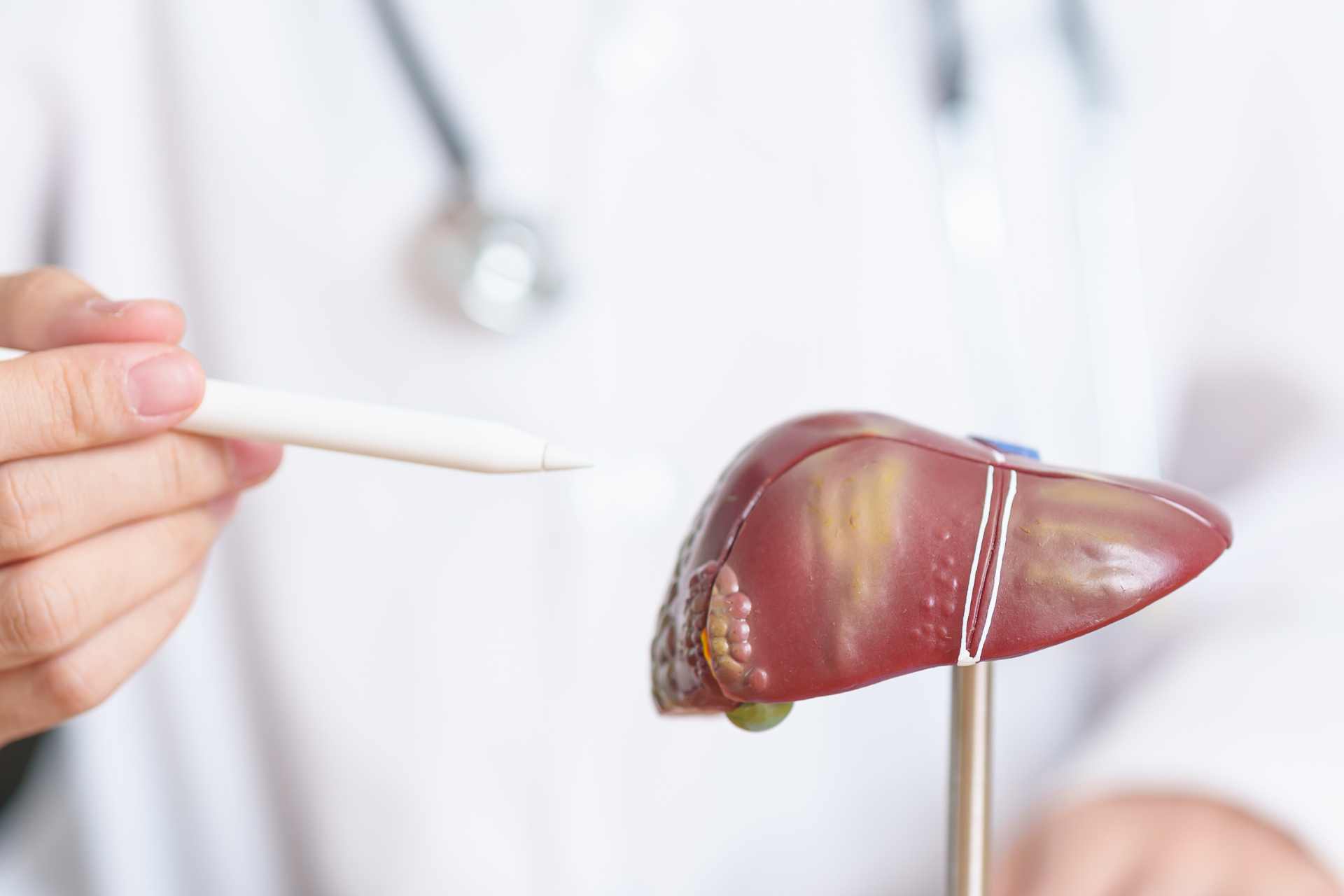What is already known
Consuming alcohol in excessive quantities can lead to alcoholic liver disease — a series of liver conditions ranging from fatty liver to inflammation and cirrhosis. The gut microbiota has been associated with this and other liver diseases, but the specific microbes and mechanisms involved are poorly understood.
What this research adds
Working in mice, researchers have found that a diet rich in fiber increases the abundance of Bacteroides acidifaciens and eases alcohol-induced liver injury. Giving mice B. acidifaciens alone reduces liver injury through a mechanism that ensures the production of sufficient glutamate — a molecule that protects against the detrimental effects of elevated ammonia levels associated with alcohol consumption.
Conclusions
The findings suggest that combining dietary fiber with B. acidifaciens can be a therapeutic strategy for alcoholic liver disease.
Consuming alcohol in excessive quantities can lead to alcoholic liver disease — a series of liver conditions ranging from fatty liver to inflammation and cirrhosis. Now, researchers have found that a diet rich in fiber and a gut microbe called Bacteroides acidifaciens can reduce alcohol-induced liver injury in mice.
The findings, published in Cell Host & Microbe, suggest that combining dietary fiber with B. acidifaciens can be a therapeutic strategy for alcoholic liver disease.
The condition accounts for about 70% of cirrhosis cases and half of all liver disease deaths worldwide. The gut microbiota has been associated with this and other liver diseases, but the specific microbes and mechanisms involved are poorly understood.
Previous studies have shown that a diet rich in fiber can shape the gut microbiota in ways that increase the production of beneficial compounds such as short chain fatty acids. These molecules promote gut health, prevent inflammation and lower blood glucose and cholesterol.
To investigate the effects of dietary fiber and gut microbiota changes on alcoholic liver disease, researchers led by Haiyuan Shen at Anhui Medical University in Hefei, China, induced alcoholic liver disease in mice, some of which were fed a diet rich in fiber.
Liver protection
The researchers found that mice on a fiber-rich diet showed reduced alcohol-induced liver injury as well as differences in their gut microbiota composition. In particular, these mice had higher levels of B. acidifaciens in their guts compared to mice fed a diet poor in fiber and those only fed alcohol.
B. acidifaciens is a member of the Bacteroidetes phylum in the gut microbiota and has previously shown promise in alleviating liver injury and inflammation associated with alcoholic liver disease.
Giving mice B. acidifaciens alone also reduced liver injury, the researchers found. Further analyses suggested that B. acidifaciens protects against alcohol-induced damage to the gut barrier. “We hypothesized that living B. acidifaciens may directly regulate molecular signaling in the liver through certain substances to reduce alcohol-induced hepatocyte damage, steatosis, and liver inflammation,” the authors say.
Molecular signaling
To test their hypothesis, the researchers studied the complete set of proteins present in the liver of mice with alcoholic liver disease that were fed a fiber-rich diet. The results showed that B. acidifaciens alone reduces liver injury through a mechanism that ensures the production of sufficient glutamate.
Glutamate is an amino acid that helps in the detoxification of ammonia, whose production in the liver increases after alcohol consumption. Excessive ammonia is toxic to cells as it disrupts normal cellular function, induces oxidative stress and can lead to neurological complications. Glutamate protects against the detrimental effects of elevated ammonia levels associated with alcohol consumption.
The findings suggest that a diet rich in fiber and B. acidifaciens can improve the outcomes of alcoholic liver disease in mice, the authors say. However, they add, “whether [alcoholic liver disease] patients may benefit from dietary modification or supplementation with B. acidifaciens needs to be investigated in further studies.”









